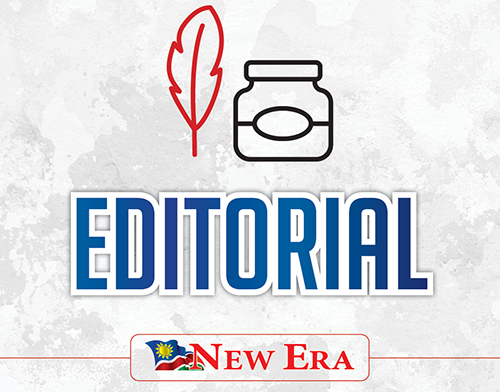The old cliche that Namibia is a friend to all and an enemy to none should win us more friends than enemies. But our friends should treat the relationship with the necessary decorum and respect.
Friends do not dictate or diminish the struggles and historical trauma of their friends. Friends also do not dictate to their friends how they should relate to their other friends.
This week, two European Union (EU) commissioners visited Namibia to help celebrate 33 years of Namibia-EU relations, and further cement the ties.
The EU says it wants to create equal and mutually beneficial relations with African countries, including Namibia.
However, during an interview with New Era, commissioners Thierry Breton (internal market) and Jutta Urpilainen (international partnerships) were eager to instead focus on the future rather than be reminded of Europe’s dark and bloody past.
Acknowledging Germany’s genocide of Namibians, the commissioners said while the shared dark past should not be forgotten, greater focus must be placed on the future.
This is indeed a problematic stance, as we need to address, receive a sincere apology and acceptable reparations for the atrocities of the past before we can look to the future.
No amount of reparations will ever atone for the immeasurable damage and harm the colonisers have caused. But for the Europeans to want to sweep this immensely pivotal point in our history under the rug is not acceptable.
President Hage Geingob on Wednesday also reminded the visiting commissioners where Namibia stands on the Ukraine- Russia war that has now become an arm wrestle between the world’s super powers.
This stance should be shouted from the proverbial rooftops.
Africans don’t want to be part of these international squabbles, and we should not have to suffer due to their inability to maturely resolve their tribal tussles.
The Russia-Ukraine situation fundamentally defeats the West’s stance as a mature voice and self-proclaimed policeman of the world who brings peace everywhere.
As President Geingob rightly pointed out, “No one wins in a war. Everyone’s a loser”.
The fact that the West is fuelling the conflict by sinking billions of dollars in weapons and support into Ukraine’s effort and not even talking about peace efforts, should render both the US and the EU mute on any conflict anywhere else in the world henceforth.
As the West loses its lustre, Africans, who have always been bullied out of their raw resources in exchange for ‘aid’, should take their rightful position as equals on the international stage.
However, Namibia needs to state its position boldly and confidently.
The fact that the country is rapidly becoming the flavour of the month as multinationals and superpowers clamour for its recently-discovered oil and its ability to generate green hydrogen, should provide us with the confidence to insist on our own way and getting things done on our terms.
In contemporary Namibia, the genocide meted out against the Nama and Ovaherero communities remains one of the unclosed and most hideous chapters in our history.
No one should tell us to move on.


